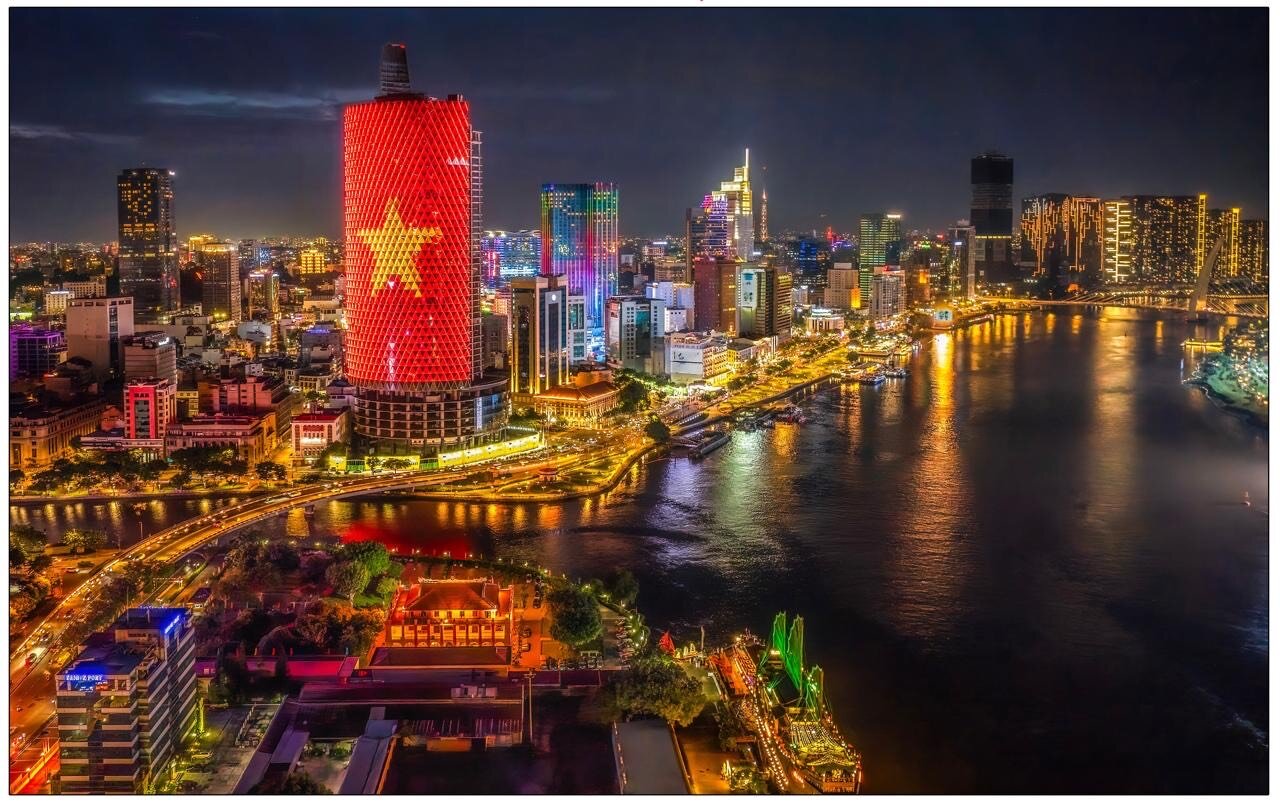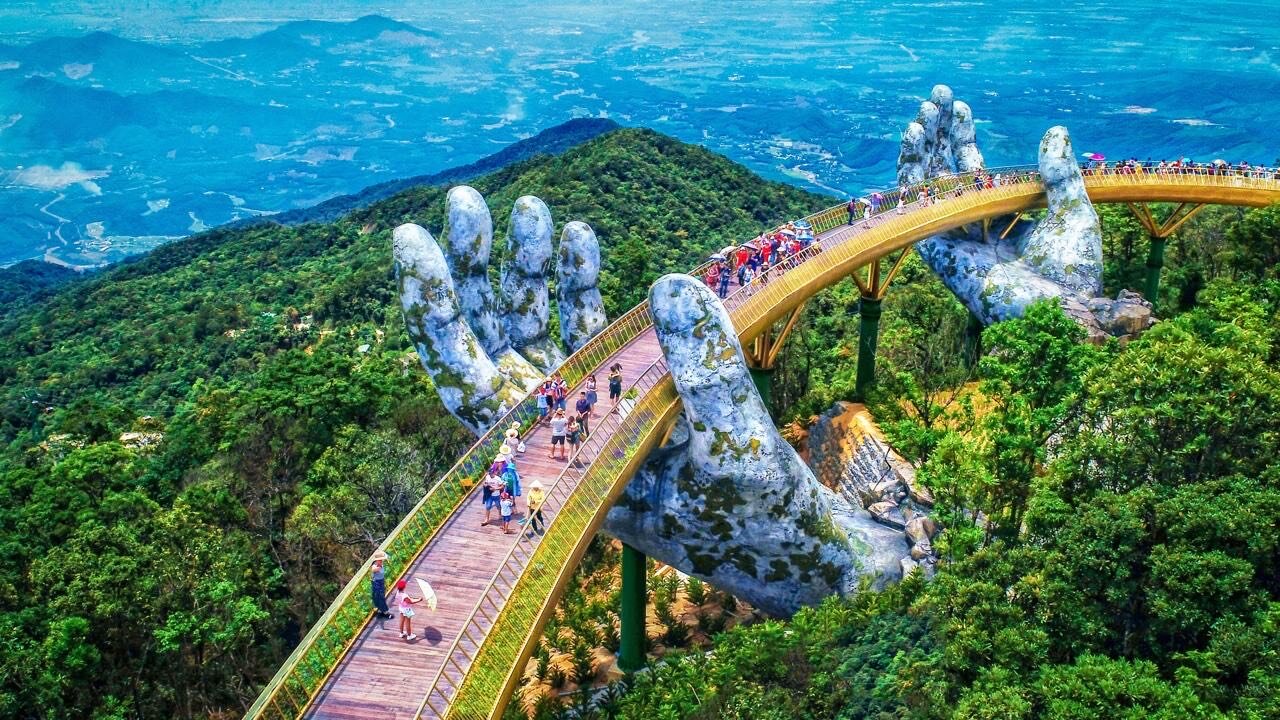Viet Nam – 80 Years of Journey for National Independence, Peace, and Development

TEHRAN- In recent days, the entire nation of Viet Nam is joyfully celebrating the 80th anniversary of National Day (September 2nd, 1945 – September 2nd, 2025). On this occasion, the Embassy of the Socialist Republic of Viet Nam in the Islamic Republic of Iran respectfully presents to our Iranian friends an overview of the 80-year journey of struggle for independence, safeguarding of peace, and the process of nation-building and development of Viet Nam.
The Birth of the Democratic Republic of Viet Nam and the Resistance against foreign invaders
Looking back to 1945, when the revolutionary movement in Viet Nam had reached its peak, the Vietnamese people seized the opportunity to rise up in the August Revolution and take back power into their own hands.
On September 2nd, 1945, in the capital city of Hanoi, President Ho Chi Minh solemnly read the Declaration of Independence, giving birth to the Democratic Republic of Viet Nam, the first worker-peasant state in Southeast Asia, marking a historic turning point in the process of national liberation.
Immediately thereafter, French colonialists returned to reoccupy Indochina. For nine arduous years (1945–1954), the Vietnamese army and people waged a heroic resistance war, culminating in the historic victory at Dien Bien Phu (May 7th, 1954), “resounded throughout five continents and shaking the globe”, which forced France to sign the Geneva Accords, recognizing Viet Nam’s independence, sovereignty, unity, and territorial integrity. This event ended thousands of years of feudal monarchy and nearly a century of colonial domination in Viet Nam.
However, the United States quickly replaced France, establishing a puppet regime in the South with the scheme of separating Viet Nam. In the face of countless difficulties and challenges, the Vietnamese people have shown their resilient will, passionate patriotism and burning love of peace, united with one heart, fighting heroically against foreign invaders, under the wise leadership of the Communist Party of Vietnam and President Ho Chi Minh, along with the support and assistance of friends and peace-loving people around the world. As a result, it forced the United States to sign the Paris Peace Accords on January 27th, 1973, ending the war and restoring peace in Viet Nam. Building on this momentum, the Vietnamese army and people launched the final offensive to overthrow the puppet regime, liberating the South and reunifying the country on April 30th, 1975. This was a monumental victory that ushered a new era of independence, peace, and national unity.
Nevertheless, the war left extremely heavy consequences: millions of people dead or injured, a devastated economy, a backward and impoverished society, destroyed infrastructure along with tens of millions of liters of chemical agents sprayed over the South, leaving long-term consequences, compounded by harsh embargoes and blockades.
In this context, with self-reliance and resilience, Viet Nam has rebuilt the nation from the ashes of war, gradually overcoming crises, breaking the blockade, opening up and integrating with international community, steadily building a prosperous nation on the path of industrialization and modernization.
Doi Moi (Renovation): A Historic Turning Point
In 1986, the 6th National Congress of the Communist Party of Viet Nam adopted a historic decision, initiating the Doi Moi (Renovation) policy. This was a comprehensive reform program that transformed the centrally planned economy into a socialist-oriented market economy, emphasized private sector development, granted autonomy to farmers, opened the economy, expanded foreign relations, and pursued a policy of being friendly to all nations regardless of political system.
Throughout four decades of development, overcoming numerous difficulties and challenges, Viet Nam has become a developing country with a near upper-middle income level, deeply integrated into global politics and economics.
Viet Nam has preserved a peaceful and stable environment for development, safeguarded sovereignty and territorial integrity, ensured national defense, public security, social order, and consistently implemented the “Four No’s” national defense policy: no military alliances; no aligning with one country against another; no foreign military bases or use of Viet Nam’s territory against other countries; and no using or threatening of force in international relations.
Internationally, Viet Nam has consistently demonstrated itself as a responsible member of the global community, committed to maintaining and fostering sustainable peace in Asia and the world. Viet Nam now maintains diplomatic relations with 194 countries, established strategic partnerships and comprehensive strategic partnerships with 23 countries, including all five permanent members of the United Nations Security Council, and is an active, responsible member of more than 70 international organizations.
From 1986 to 2024, Viet Nam’s GDP grew at an average rate of 6–7% per year, increased from USD 8 billion to USD 476.3 billion, nearly 60 times. GDP per capita rose from less than USD 74 to USD 4,700, an increase of 63 times. Foreign direct investment reached nearly USD 520 billion from 151 countries and territories during the period of 1987–2025. The poverty rate fell from 60% to only 1.93% (based on UN standards). Literacy reached nearly 98%; more than 93% of the population have health insurance and access to over 14,000 medical facilities. For 40 years, Viet Nam has consistently balanced development goals with social equality, ensuring that no citizen is left behind.
In 2024, Viet Nam’s economy ranked 32nd globally, with international trade turnover exceeded USD 786 billion, placing it among the world’s top 20 in term of trading turnover. Vietnamese exports rank first globally in cashew nuts and pepper; second in coffee, footwear, and furniture; and third in rice and garments.
Viet Nam ranks 71st out of 193 countries in the UN’s E-Government Development Index (EGDI), with the digital economy accounting for 18.3% of GDP. The national brand value has risen to USD 507 billion, ranking 32nd worldwide.
Viet Nam has been recognized as the “World’s Leading Heritage Destination” for many consecutive years. In 2024, the country welcomed 17.5 million international visitors and targets 22–23 million in 2025.
The Second Renovation: Entering the Era of Rising Nation
From 2024, the Communist Party of Viet Nam has identified that the country is standing at the threshold of a new development stage, entering a decisive “rising era” to overcome the middle-income trap, aiming to become a modern industrialized nation with upper-middle income by 2030 and a high-income nation by 2045.
To this end, in the first half of 2025 alone, Viet Nam streamlined its administrative system to enhance efficiency and save budgetary resources by reducing central-level ministries and agencies from 22 to 17, merging 63 provincial-level administrative units into 34 as well as establishing a two-tier local government system nationwide by eliminating the district level, thereby cutting about 100,000 positions from the administrative bureaucracy.
Science, technology, and innovation are designated as “strategic breakthroughs.” Viet Nam has adopted a new growth model driven by science, technology, innovation, and digital transformation to dramatically improve productivity, quality, efficiency, and competitiveness. The private sector is recognized as the most important driving force of the national economy. Small and medium-sized enterprises are exempted from corporate income tax for the first three years after establishment, while the business license fee will be abolished from 2026.
Green transformation is regarded as an inevitable trend, with the goal of renewable energy accounting for 28–36% of GDP by 2030 and 75% by 2050.
Viet Nam has introduced a five-year visa exemption policy for scholars, experts, scientists, professors, chief engineers, digital/industrial personnel, investors, and leaders of major global corporations. On social security, Viet Nam has abolished tuition fees for all students from kindergarten to public high schools, rebuilt 330,000 dilapidated houses, and is constructing at least one million social housing units for low-income people. By 2030, the Government aims to provide universal free healthcare.

One of the Viet Nam’s most famous visiting places.
Viet Nam–Iran Relations: A Longstanding and Friendly Bond
Viet Nam’s achievements are inseparable from the expansion of foreign relations and international cooperation. Viet Nam always attaches great importance to friendly, cooperative, and mutually beneficial relations with Iran. The two nations have a history of trade and cultural exchanges, dating back to the 10th century, when Persian merchants came to Viet Nam for commerce.
The two countries officially established diplomatic relations on August 4th, 1973. On February 13th, 1979, just two days after the success of the Islamic Revolution, Viet Nam sent a congratulatory message to recognize the Islamic Republic of Iran. Since then, bilateral relations have developed positively, with frequent high-level exchanges, most recently a series of activities celebrating the 50th anniversary of diplomatic relations (1973–2023).
Viet Nam and Iran share many similarities as both countries hold important geopolitical roles in Southeast Asia and the Middle East; both peoples are diligent, friendly, intelligent, and peace-loving. In recent years, bilateral trade turnover has reached around USD 130–150 million. The two economies are complementary and possess vast potential for further cooperation. Viet Nam wishes to deepen cooperation with Iran in all fields, particularly politics, economy, culture, and people-to-people exchanges.
Many Vietnamese people know Iran as a peaceful, hospitable country with an ancient civilization and diverse, breathtaking landscapes. In March 2025, for the first time, an Iranian airline launched two charter flights directly bringing Iranian tourists to famous destinations in Viet Nam, opening new opportunities for bilateral tourism cooperation.
Building upon the past achievements, Viet Nam and Iran will continue to cherish and cultivate their longstanding friendship for the benefit of our peoples.
The Road Ahead
Under the wise leadership of the Communist Party of Viet Nam, the 80-year journey of struggle for independence and nation-building has affirmed that the Vietnamese people always yearn for independence and freedom, nurture ardent patriotism and a burning love for peace, and uphold a resilient and self-reliance spirit to rise above adversity to build a more prosperous country.
Throughout this journey, the Vietnamese people have always remembered with deep gratitude to the tremendous, invaluable, and sincere support of international friends, progressive forces, and peace-loving peoples around the world.
As a nation that has endured immense suffering and loss of war, the Vietnamese people profoundly understand the value of peace and stability. Therefore,
Viet Nam sincerely wishes to contribute its utmost to safeguarding and fostering peace. Viet Nam is always ready to be a friend, a reliable partner, and a responsible member of the international community, and hopes to continue learning, enhancing cooperation, and sharing development experiences with the world, including Iran in service of contributing to a peaceful, united, and prosperous future for humanity, for every nation, and for every individual on this beautiful planet.
We firmly believe that the friendship among peoples, conscience, and the noble values of humanity will forever endure; and that Viet Nam–Iran relations will continue to develop more profoundly, effectively harnessing the potential and strengths of each country and fulfilling the legitimate aspirations of our peoples.
Leave a Comment